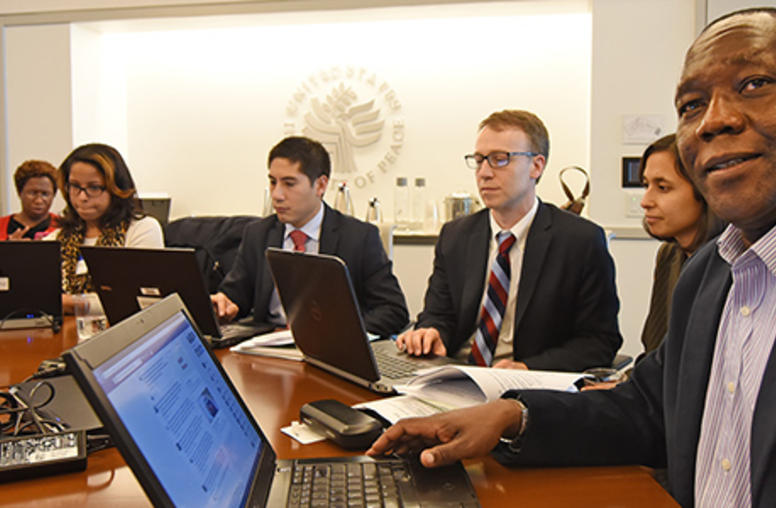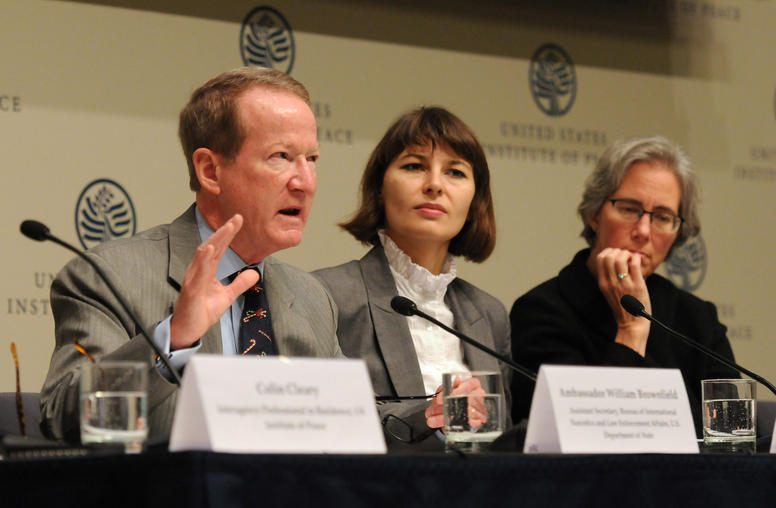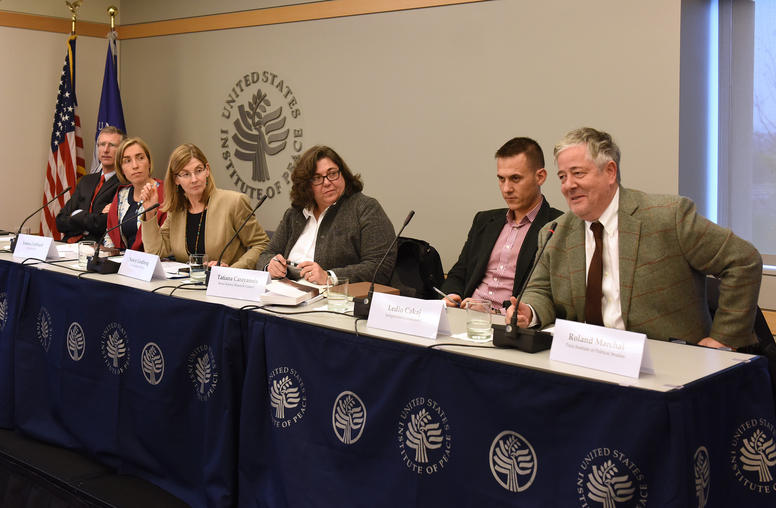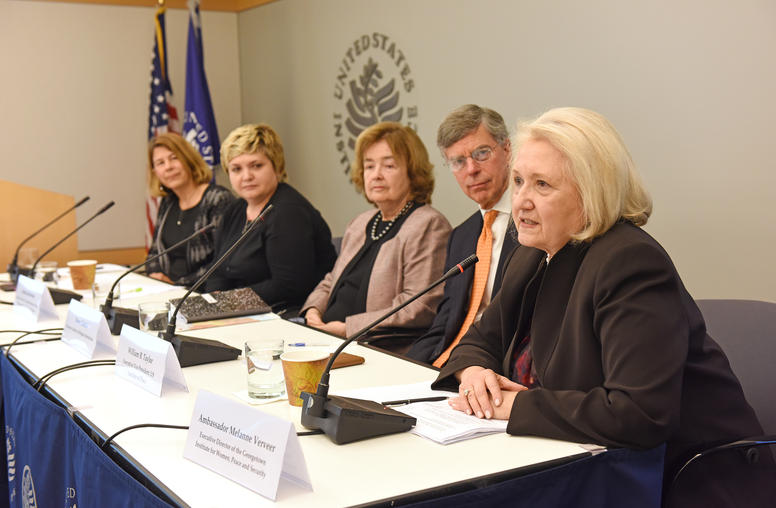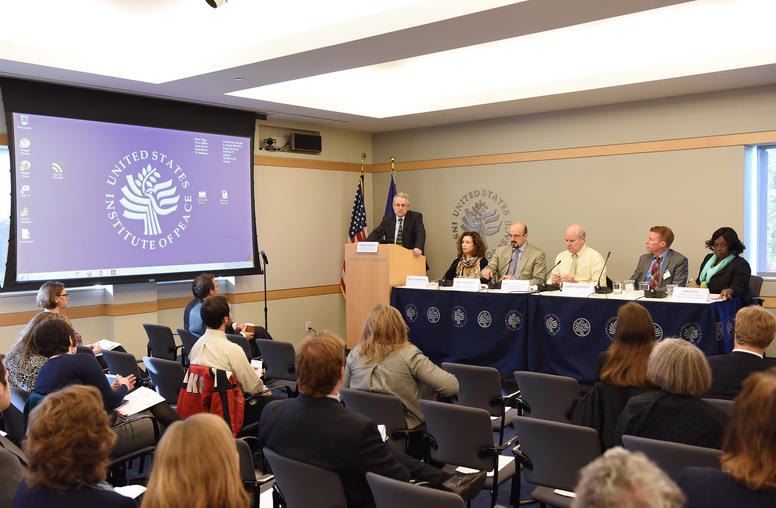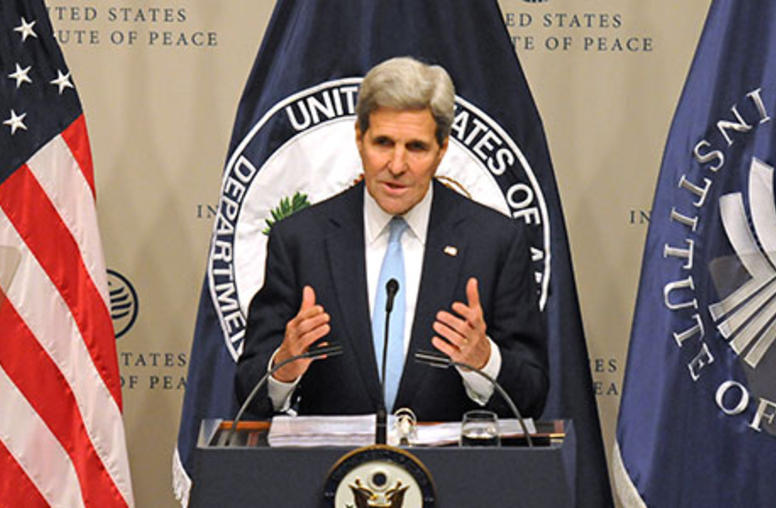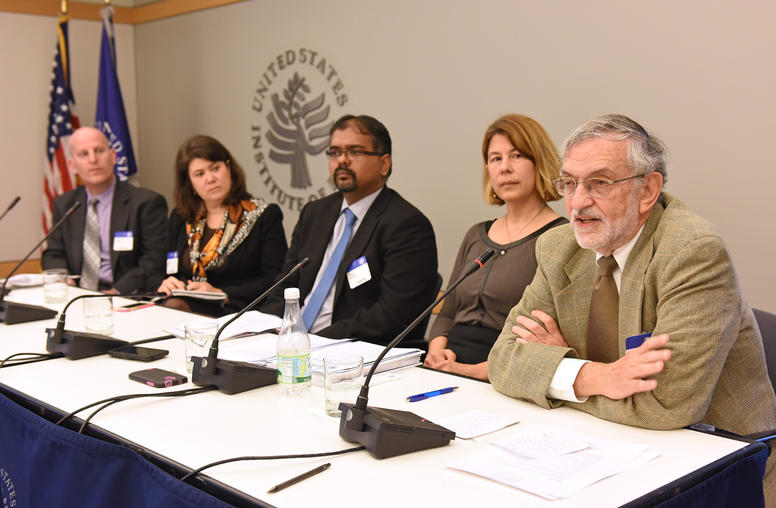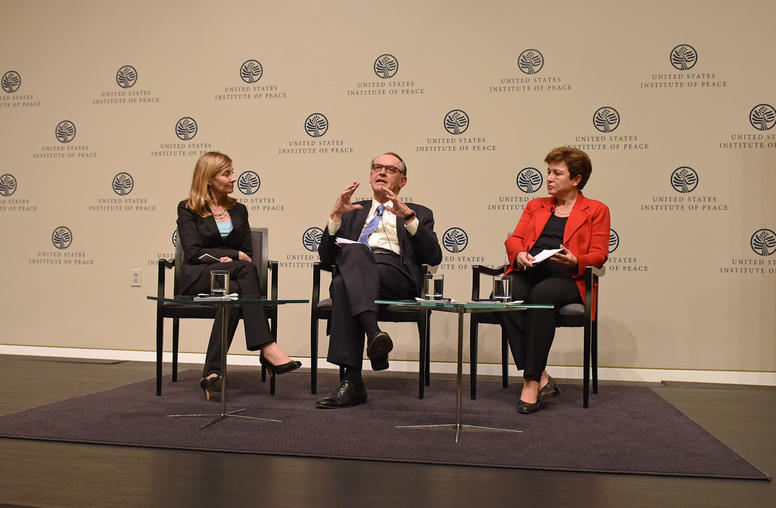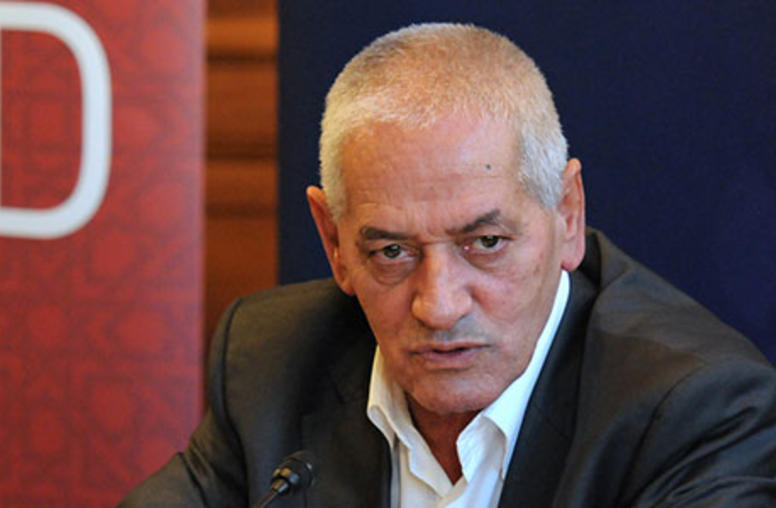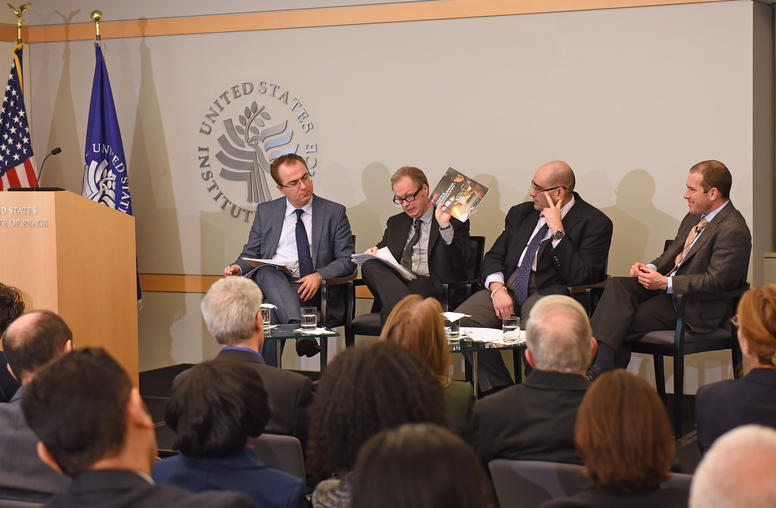
Iraq: Can Good Governance Erode Support for Militants?
Extremist groups like ISIS have seized control in swaths of Iraq and Syria in part because they tout themselves as an alternative to corrupt and inept government at all levels. USIP hosted a discussion on January 6, 2016 highlighting new research by the global humanitarian and development organization Mercy Corps on the connection between citizens’ perceptions of governance and public support for armed opposition.
